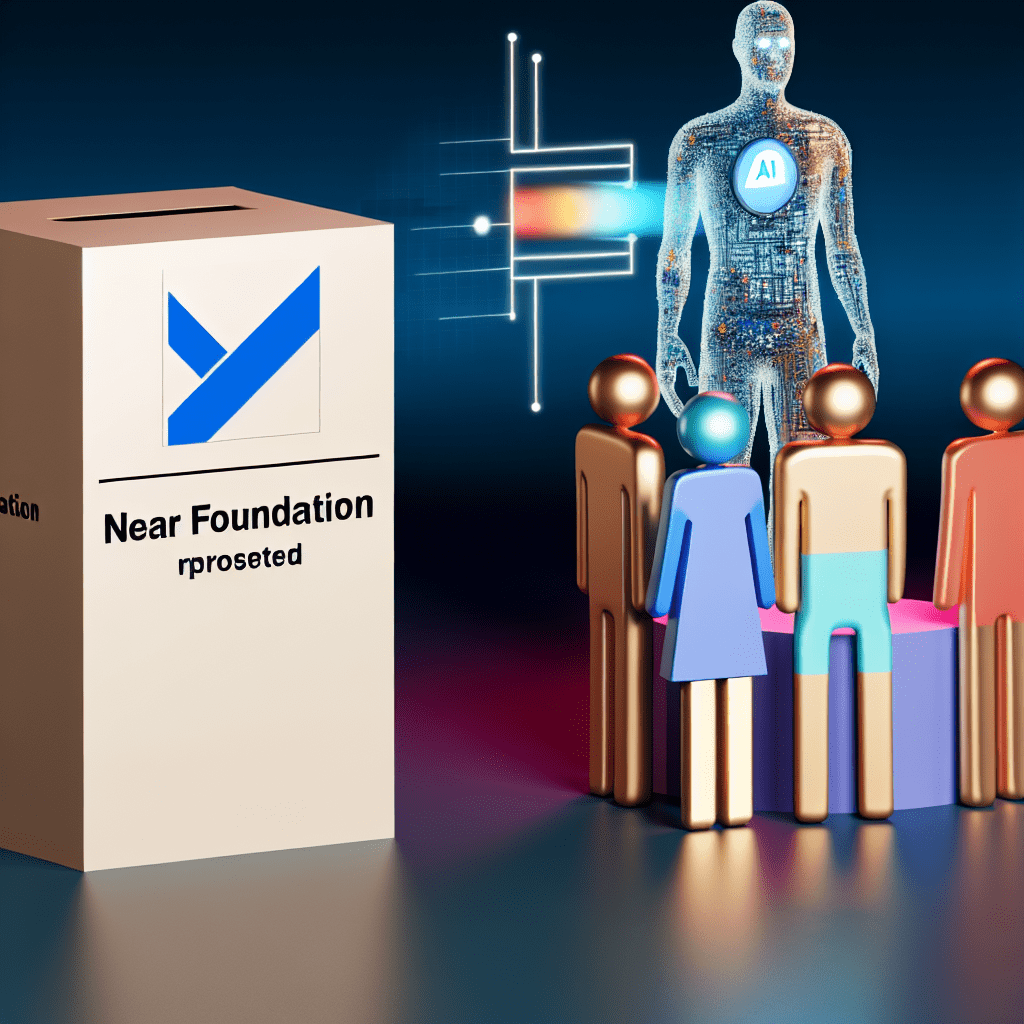The Near Foundation is working on artificial intelligence-driven “delegates” that will ultimately cast votes on behalf of its decentralized autonomous organization (DAO) members to tackle the common issue of low voter turnout seen in many protocols.
Lane Rettig, an AI and governance researcher at the Near Foundation, shared with Cointelegraph that the AI-powered governance system is still under development. The Near Foundation is in charge of the layer-1 Near Protocol.
The concept involves a user’s delegate, or “digital twin,” understanding their preferences to inform governance decisions. This approach aims to convert the voting process into a “math problem” that can be resolved almost instantaneously.
“You release this agent, and it effectively votes on your behalf while nudging you about relevant proposals,” he explained in an interview at the Token2049 conference in Singapore.
“That’s essentially our ultimate vision: to replace all human actors with a digital twin to address voter apathy and participation issues.”
It’s estimated that typical participation rates in DAOs range from 15% to 25%, resulting in potential issues like centralized power, ineffective decision-making, and, in extreme cases, governance attacks where a malicious actor gains enough tokens to approve harmful proposals unnoticed by other members.
Human involvement is essential
Rettig mentioned that human input will still play a critical role in the process.
He emphasized his belief that “there should always be a human in the loop,” particularly for proposals that are too significant to be left solely to AI, such as those related to fund distributions or strategic changes.
“Certain matters will definitely require a human to make the final call,” he stated.
“Furthermore, the AI can suggest how you might want to vote based on what it knows about you, but the final decision rests with you, and it can adapt if it misjudges your preferences.”
AI agents have already become prevalent within the crypto sector, utilized for constructing Web3 applications, launching tokens, and autonomously interacting with services and protocols, with some platforms considering employing AI agents for trading to automate tasks and make real-time choices.
Delegates based on user behavior
Similar to how generative AI models like OpenAI’s ChatGPT are trained, Rettig indicated that the AI delegates would learn from user interactions, including interviews, voting history, and communication on platforms like Telegram and Discord.
“Once you activate this agent, it learns about you, including your political preferences, the projects you care about, and your thoughts on fund allocations,” he added.
Investment manager VanEck predicts that the number of AI agents in the crypto industry exceeded 10,000 by the end of 2024, with projections of surpassing 1 million by 2025. However, concerns have been raised about the security risks AI agents pose and the potential for serious decision-making errors if they are overly relied upon.
The Near Foundation is implementing a verifiable training model to keep the delegates aligned with user values, which provides cryptographic proof of their training cycles and inputs, as noted by Rettig.
Gradual rollout of AI delegates
Near’s main DAO, the Near Digital Collective, has already introduced an AI tool named Pulse that assesses community sentiment, summarizes Discord discussions, and highlights crucial content, according to Rettig.
Related: AI agents require crypto to function in financial markets: Coinbase executive
He mentioned that they are commencing with “low-hanging fruit,” and the initial models are quite similar to chatbots, possessing “minimal agency,” providing guidance on proposals, and offering essential information and context while filling out basic templates to enhance user understanding.
The rollout will happen in phases, beginning with AI delegates representing large groups with akin voting tendencies, then transitioning to individual delegates for each person, and possibly even AI delegate CEOs in the future.
“Governance will then become a math problem, effectively summing votes. Each vote can be processed almost instantaneously, as all agents are present and familiar with the voting preferences beforehand, concluding the voting promptly.”
Magazine: What are the perspectives of major world religions regarding Bitcoin and cryptocurrency?

